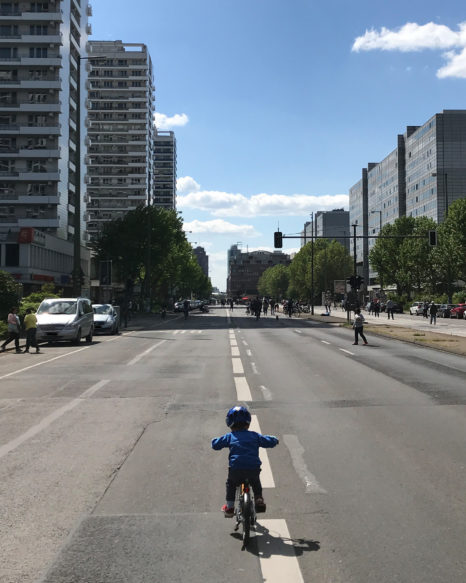Younger children up to the age of 9 are most often killed as passengers in cars; children aged 10-14 are most often killed on bicycles, but in 2019 most children were killed as pedestrians. It is not surprising that for children, especially the way to school is dangerous.
Sophia Becker und Anke Sterz ziehen nach drei Jahren Berliner Mobilitätsgesetz eine überwiegend positive Bilanz und empfehlen anderen Städten, dem Beispiel zu folgen.
The Berlin Mobility Act (MobG BE) has raised great expectations for a rapid transformation of the capital into a people- and environmentally-friendly mobility space. This paper reviews progress in four areas of action.
Sophia Becker mit Statements in einem Kurzbeitrag von Tobias Böhnke (Traffic & Channel Strategist Handelsblatt).
"Tempo 30 kann zu einer Abnahme von Schadstoffen führen. Für ein klimafreundliches Berlin bedarf es aber mehr als ein Tempolimit, sagen Wissenschaftler."
nd berichtet über die Auswertung und Benotung des ADFC Berlin hinsichtlich der Radpolitik der Berliner Parteien im Abgeordnetenhaus.
Das Bündnis für die Einführung eines Tempolimits fordert Tempo 30 in Städten. Sieben Städte in Deutschland (Aachen, Augsburg, Freiburg, Hannover, Leipzig, Münster und Ulm) wollen testen, welche Auswirkungen sich dadurch ergeben. Sophia Becker mit einem Wortbeitrag im Morgen-Podcast 0630 by WDR aktuell.
Sieben Städte in Deutschland (Aachen, Augsburg, Freiburg, Hannover, Leipzig, Münster und Ulm) wollen testen, wie es ist, wenn man maximal 30 Stundenkilometer fahren darf. Sophia Becker beantwortet im Gespräch mit Deutschlandfunk Nova sich daraus ergebende Fragen.
Katharina Götting und Anke Kläver im Gespräch mit Yvonne Adamek des Hygge Podcast - Ideen für eine bessere Welt
Die vierte Folge der Podcast-Reihe "Die Klimadebatte" thematisiert Herausforderungen und Chancen der Verkehrswende.


